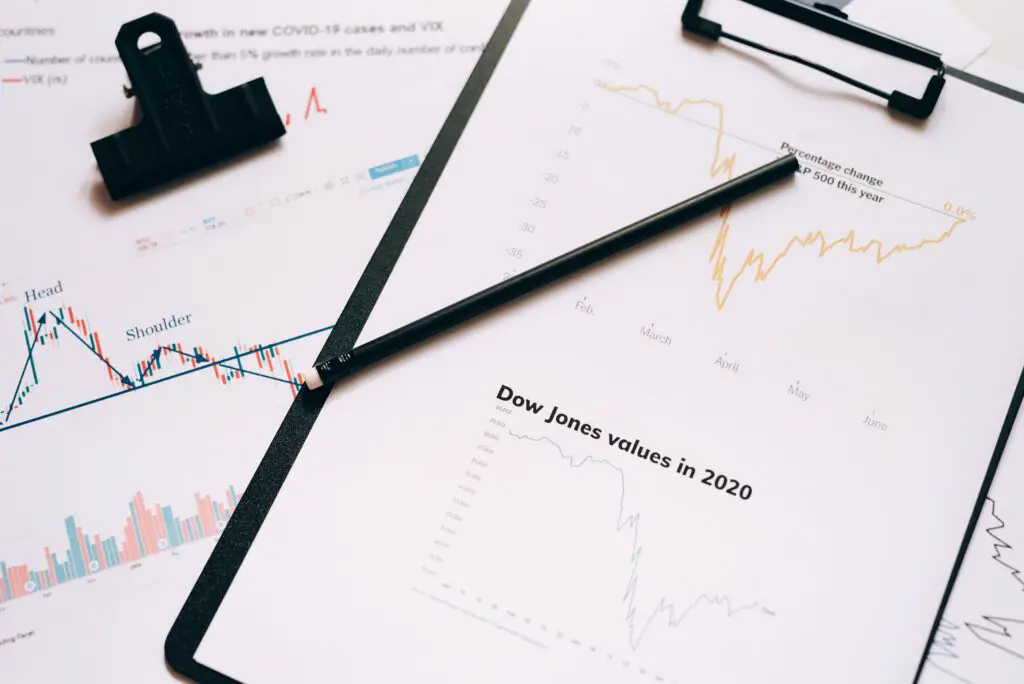When most people think about investing, they think about buying shares in a company through a mutual fund or an index fund. However, you can also invest in individual stocks. This is when you buy shares in a specific company rather than investing in a fund that holds many different companies.
In this article, we will discuss what individual stocks are, the pros and cons of owning them, and how to go about buying them.
What are individual stocks?
When a company issues shares of stock, that means they are selling a piece of ownership in the company to the public. These shares can be bought and sold on the stock market. When you buy shares of an individual company, you become a shareholder. These shares are what investors refer to as individual stocks. Rather than a basket or group of stocks in a fund, buying individual stocks means that you own shares of just one company.
Owning individual stocks means that you have partial ownership of the company and are entitled to a portion of the profits (or losses) generated by that company. Some individual stocks also payout dividends per share. For example, a stock might entitle the shareholder to $0.50 per share in dividends each year.
Investing in individual stocks is different than investing in a fund because you are taking on more risk. When you buy shares of a company, you are putting all your eggs in one basket. If the company does well, your investment will go up in value. If the company does poorly, your investment will go down in value.
What is an example of an individual stock?
TSLA is Tesla's stock ticker symbol. So, if you wanted to buy shares of Tesla, you would be buying TSLA stock. If you own just TSLA in your portfolio, that means you own individual Tesla stock.
Can you buy individual shares?
Yes, most brokerage firms allow their client to buy individual shares. This is what stock pickers are looking for. Rather than buying an index or mutual fund, stock pickers try to find the best individual stocks to buy.
Is it smart to buy individual stocks?
It's smart to buy individual stocks if the company is undervalued and you know what you are doing in general. Stock picking comes with more risk, but if you are willing to take on that risk, it can be worth it.
For most people, however, it's smarter to just stick with index funds or mutual funds because they diversify for you and it can be difficult to research and evaluate all the different companies out there.
Warren Buffet (arguably the most successful investor of all time) has even said that for most people, index funds are the way to go. On the contrary, those that have a passion for stock picking and are willing to put in the time to research individual companies and compare stocks may find that buying individual stocks is right for them.
Self-awareness is key here. If you don't think you have the time or energy to research individual stocks, it's probably not worth your while. To say that it is smart or not smart depends entirely on the individual and only you can make that decision.
Individual stocks pros and cons

The main benefit of individual stocks is that you can find undervalued opportunities that will increase in value over time. If you are good at stock picking, this can lead to outperforming the market and achieving above-average returns.
Individual stocks also give the benefit of having the option to invest in specific companies that fits your ethical or political views. For example, if you only want to invest in environmentally friendly companies, you can do that with individual stocks.
Sure, there might be index funds that track sustainability but there could be a few companies in that fund that you don't agree with.
With individual stocks, you have full control over what companies you are invested in. Rather than having a fund manager trade in and out of different stocks, you can hold on to the same stocks for as long as you want.
This ensures that you are invested in the companies that you truly believe in. The downside of individual stocks is that it is riskier than investing in a fund. As mentioned earlier, diversification is key to mitigating risk and when you invest in individual stocks, you allocate your entire capital towards that one company.
If the company goes bankrupt, you could lose all your money. You can diversify by buying a bunch of individual stocks, but that can be expensive if you have to pay commission fees and it's also much more time-consuming and difficult to manage.
It's also difficult to pick winning stocks. Although you can increase your chances by reading articles published on this website to increase your stock-picking abilities, if you aren't willing to put in the time, you will likely underperform the market.
Like most things in life, there are pros and cons. Individual stocks are no different. If the pros outweigh the cons for you, then individual stocks might be the right investment choice. But if not, there are plenty of other options out there.
Risks of individual stocks
As mentioned earlier, the main risk of picking individual stocks is the potential for loss. Unlike with index funds or mutual funds, where your investment is diversified across many different companies, with individual stocks the opposite is true.
If the company you've invested in goes bankrupt, has a scandal, or loses its competitive edge, your investment could be wiped out. Another risk to consider is volatility. Even the most stable companies can see their stock prices rise and fall sharply in response to news events or changes in the market.
If you need to sell your shares quickly, you may not be able to get the price you want, or you may have to pay more in fees to do so. In the case of Enron, for example, employees who held company stock in their retirement accounts saw the value of those holdings plummet within a short period.
Even though Enron seemed like a good stock pick for some people, it ultimately turned out to be a bad investment. Bankruptcy risk is real. That's what stopped many people from investing in Tesla in the early days.
If you are willing to put up the capital potentially to reap the rewards, then individual stocks may be a good investment decision for you. But always remember to do your research and understand the risks involved.
Remember that not all individual companies will be successful.
Individual stocks vs index funds
Before we explore which one is better, it's important to explain that investors can invest in both options. For example, a portfolio could look like 80% index funds and 20% individual stocks.
However, let's say that you're trying to decide whether to put all of your money into index funds or whether to add some individual stocks to the mix.
Here's a look at how these two types of investments differ:
With an index fund, you are buying a basket of stocks that track a certain index. For example, the S&P 500 is an index made up of 500 large U.S. companies. Specific index funds are also available such as Green Tech, Healthcare, or even ones that focus on a certain region like Europe. When you buy an index fund, you are buying all of the stocks in that particular index in one fell swoop.
With individual stocks, you are hand-picking each stock that you want to own. This means that you will need to do your research on a company before investing. For example, let's say that you're interested in investing in Apple.
You would want to look at things like their financial statements, recent news, and analyst reports to get a sense of whether or not the stock is a good investment.
So which is better? It really depends on your goals and preferences as an investor. Some people prefer the simplicity of index funds while others like the idea of hand-picking stocks. There are also pros and cons to each option.
Index funds offer diversification. Stocks offer the potential for higher returns. Index funds are seen as less risky. Stocks are seen as riskier. Index funds can be a bad or good investment depending on the industry and assets that it tracks.
Stocks can outperform or underperform. The key is to understand what you're buying and why. Do your research and figure out what makes sense for you. There's no right or wrong answer.
There are both sides to the debate of whether individual stocks or funds are better. It depends on the individual and what they are looking for in their investment.
Individual stocks vs mutual funds
Mutual funds are similar to index funds except that they are actively managed by a fund manager. This means that the fund manager is making decisions on which stocks to buy and sell.
They typically come with a higher fee which could change the overall performance of the fund. Individual stocks, on the other hand, are not managed by anyone. You are essentially buying a small piece of a company and becoming a shareholder.
You can vote on corporate decisions and receive dividends (a portion of the company’s profits). Although the company itself is managed by the C-suite, it is not actively managed by anyone. They share the similarity that a degree of trust is needed.
The management of the company or fund can make decisions that affect the overall performance. However, with individual stocks, you have more control as a shareholder. You can sell your shares at any time if you don’t agree with the management's decisions.
With mutual funds, you can't sell a company that you don't like within that fund. For example, if one company in the fund is involved in unethical practices, you have to hope that the fund manager will sell that company's stocks. If not, your investment capital could technically be helping to support that unethical company.
Conclusion
If you are adamant about picking stocks, it's best to make sure you are properly educated and well prepared before selecting your favorite companies. It's important to learn how to read financial statements and to understand what you're looking for.
You should also be aware of the risks involved in individual stock investing. However, this website is full of content that can help you get started on your research.

